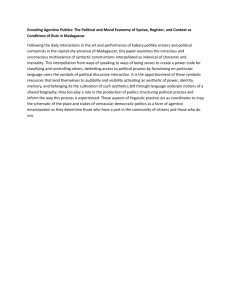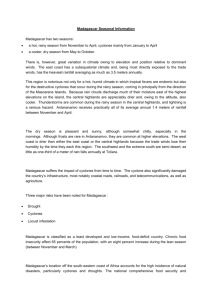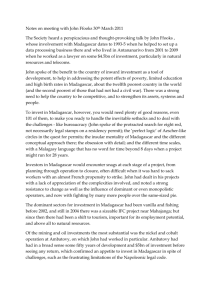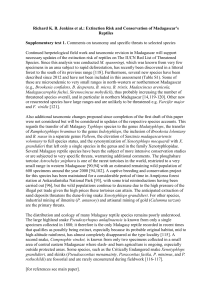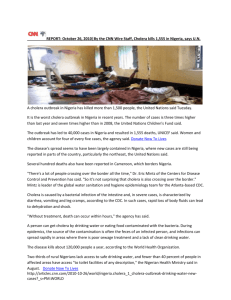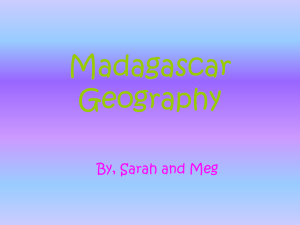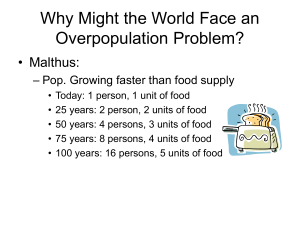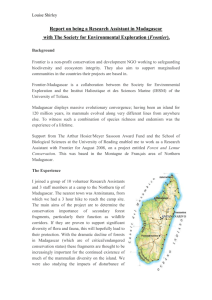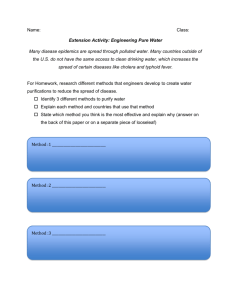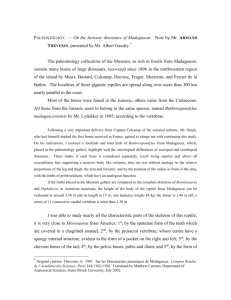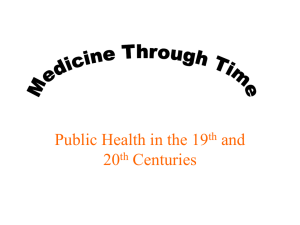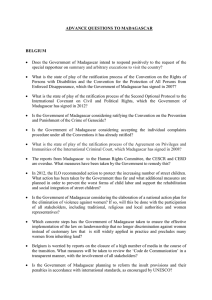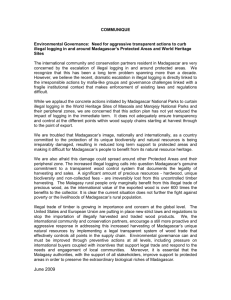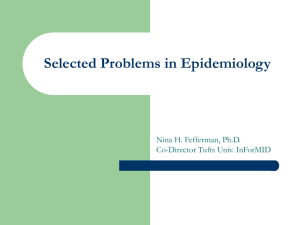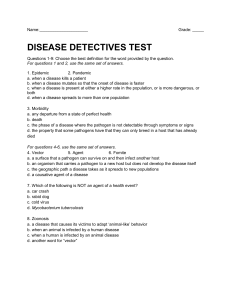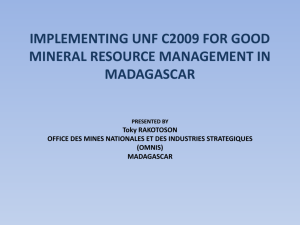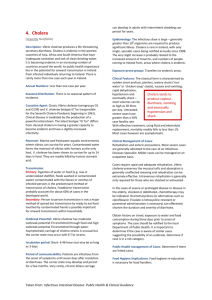World Health Organization
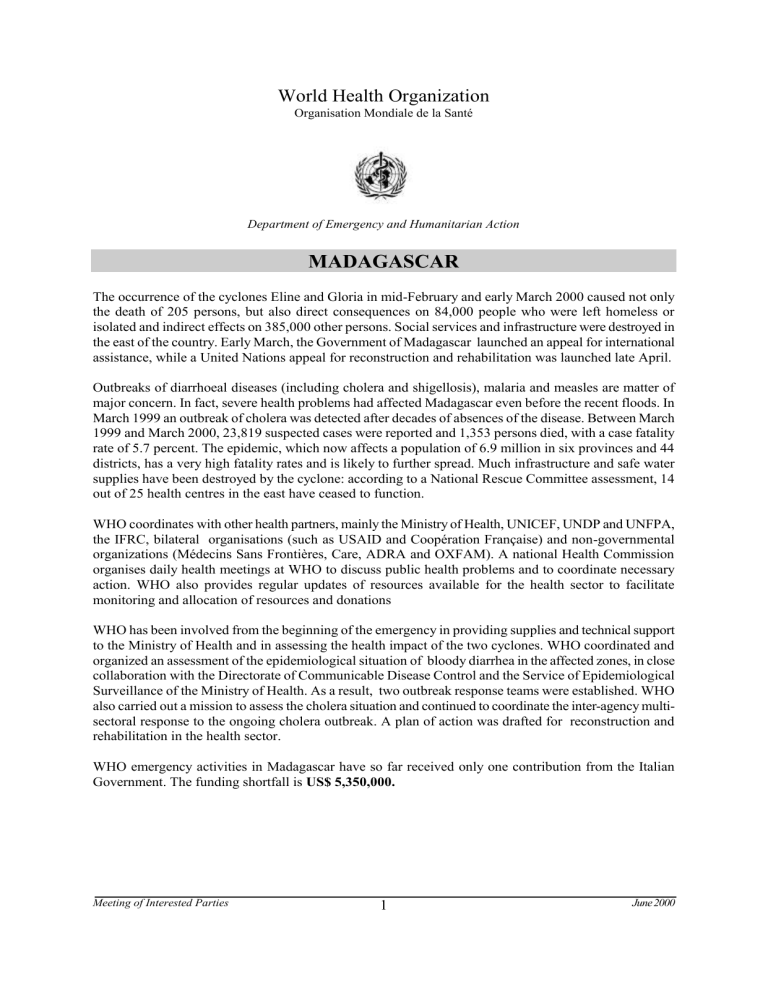
World Health Organization
Organisation Mondiale de la Santé
Department of Emergency and Humanitarian Action
MADAGASCAR
The occurrence of the cyclones Eline and Gloria in mid-February and early March 2000 caused not only the death of 205 persons, but also direct consequences on 84,000 people who were left homeless or isolated and indirect effects on 385,000 other persons. Social services and infrastructure were destroyed in the east of the country. Early March, the Government of Madagascar launched an appeal for international assistance, while a United Nations appeal for reconstruction and rehabilitation was launched late April.
Outbreaks of diarrhoeal diseases (including cholera and shigellosis), malaria and measles are matter of major concern. In fact, severe health problems had affected Madagascar even before the recent floods. In
March 1999 an outbreak of cholera was detected after decades of absences of the disease. Between March
1999 and March 2000, 23,819 suspected cases were reported and 1,353 persons died, with a case fatality rate of 5.7 percent. The epidemic, which now affects a population of 6.9 million in six provinces and 44 districts, has a very high fatality rates and is likely to further spread. Much infrastructure and safe water supplies have been destroyed by the cyclone: according to a National Rescue Committee assessment, 14 out of 25 health centres in the east have ceased to function.
WHO coordinates with other health partners, mainly the Ministry of Health, UNICEF, UNDP and UNFPA, the IFRC, bilateral organisations (such as USAID and Coopération Française) and non-governmental organizations (Médecins Sans Frontières, Care, ADRA and OXFAM). A national Health Commission organises daily health meetings at WHO to discuss public health problems and to coordinate necessary action. WHO also provides regular updates of resources available for the health sector to facilitate monitoring and allocation of resources and donations
WHO has been involved from the beginning of the emergency in providing supplies and technical support to the Ministry of Health and in assessing the health impact of the two cyclones. WHO coordinated and organized an assessment of the epidemiological situation of bloody diarrhea in the affected zones, in close collaboration with the Directorate of Communicable Disease Control and the Service of Epidemiological
Surveillance of the Ministry of Health. As a result, two outbreak response teams were established. WHO also carried out a mission to assess the cholera situation and continued to coordinate the inter-agency multisectoral response to the ongoing cholera outbreak. A plan of action was drafted for reconstruction and rehabilitation in the health sector.
WHO emergency activities in Madagascar have so far received only one contribution from the Italian
Government. The funding shortfall is US$ 5,350,000.
Meeting of Interested Parties 1 June 2000
World Health Organization
Action
Madagascar Dep. of Emergency and Humanitarian
Contacts
EHA Focal Point: K. Shibib
Country Focal Point: Imboua Bougui, WHO Representative
Activities
Rehabilitation of Health Services
Water Quality and Sanitation
Total
Contributions Received
Outstanding Requirements
Requirements
(US$)
2,500,000
3,000,000
5,500,000
150,000
5,350,000
Meeting of Interested Parties 2 June 2000
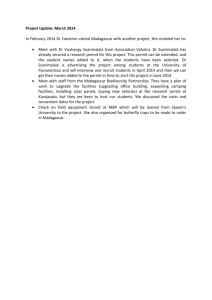
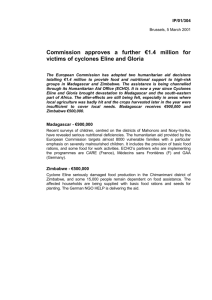
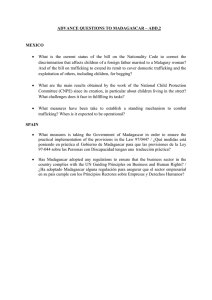
![Epi model cholera[25028]](http://s2.studylib.net/store/data/025731793_1-6253d7378c1e82aa1a06b47dc36e4ce4-300x300.png)
